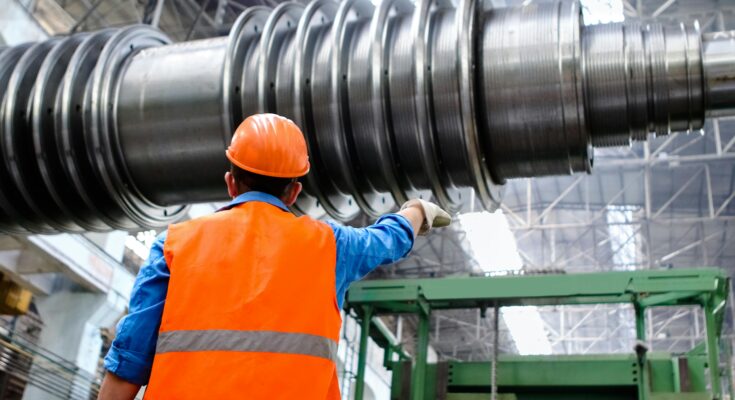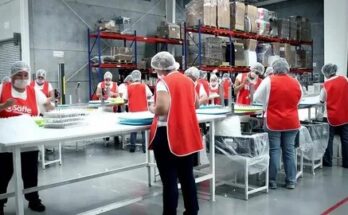Factory worker jobs form the backbone of countless industries across the globe. From assembling electronics to packaging goods, these roles ensure that products are manufactured efficiently and delivered to consumers on time. As economies grow and demand for products increases, the need for skilled and reliable factory workers continues to rise. In this article, we’ll explore the ins and outs of factory worker jobs, including job responsibilities, skills needed, career growth opportunities, and expert tips for success.
The Role of a Factory Worker
What Does a Factory Worker Do?
Factory worker jobs involve a wide range of tasks depending on the industry. Typically, these jobs include assembling products, operating machinery, inspecting goods, and packing finished items for shipment. Some workers specialize in specific areas like quality control or machine maintenance, while others perform more general labor tasks.
Daily Responsibilities
- Operating production equipment and tools
- Monitoring production lines for efficiency and safety
- Conducting quality checks on products
- Packaging and labeling items
- Reporting defects or malfunctions to supervisors
- Maintaining cleanliness and order in the work area
Essential Skills for Factory Worker Jobs
Physical Stamina and Strength
Factory work often requires standing for long periods, lifting heavy objects, and performing repetitive motions. Physical fitness is crucial for maintaining productivity and avoiding injuries.
Attention to Detail
A factory worker must be detail-oriented to catch defects and ensure that every product meets the required standards.
Technical Aptitude
Many factory worker jobs involve the use of machinery. Basic knowledge of how machines operate and how to troubleshoot minor issues can be highly advantageous.
Teamwork and Communication
Factory workers typically operate as part of a team. Effective communication and collaboration are essential to keep the production process running smoothly.
Time Management
Working on a production line means adhering to strict schedules. Being punctual and managing time efficiently are key traits of a successful factory worker.
Types of Factory Worker Jobs
Assembly Line Workers
These workers focus on putting together components to create a finished product. Speed, precision, and teamwork are vital in this role.
Machine Operators
Machine operators manage and maintain the equipment used in manufacturing. They are responsible for setting up machines, monitoring performance, and making necessary adjustments.
Quality Control Inspectors
These professionals ensure that products meet quality and safety standards. Their tasks include testing, measuring, and inspecting products at various stages of production.
Packaging Workers
Packaging workers prepare products for shipment. This includes labeling, boxing, and sometimes palletizing items for transport.
Work Environment and Conditions
Factory worker jobs are usually based in manufacturing plants or production facilities. These environments can be noisy, and workers often need to wear protective gear like gloves, earplugs, and safety goggles. Depending on the industry, shifts may vary, including night and weekend hours.
Career Growth and Advancement
Entry-Level to Skilled Positions
Many people begin their journey in factory worker jobs as entry-level employees. With experience, they can move up to specialized roles such as machine technician or shift supervisor.
Training and Certification
Pursuing certifications in areas like forklift operation, safety protocols, or machine maintenance can open doors to higher-paying positions and greater job stability.
Long-Term Career Paths
Dedicated factory workers can advance into roles such as production manager or plant supervisor. These positions require leadership skills, a deep understanding of the production process, and often, formal education.
Expert Tips for Success in Factory Worker Jobs
1. Prioritize Safety
Always follow safety protocols. Familiarize yourself with emergency procedures and use protective gear properly. A safe worker is a productive worker.
2. Stay Organized
Keep your work area clean and tools well-maintained. Organization reduces downtime and minimizes mistakes.
3. Embrace Continuous Learning
Stay updated on new technologies and techniques in your industry. Attend workshops or take online courses to sharpen your skills.
4. Develop a Strong Work Ethic
Be punctual, dependable, and dedicated. Supervisors value workers who consistently show up and do their job well.
5. Build Good Relationships
Foster positive relationships with coworkers and supervisors. Good communication and teamwork often lead to better opportunities.
Advantages of Factory Worker Jobs
Job Stability
Factory worker jobs are in high demand, offering consistent employment opportunities across various sectors.
Opportunities Without a College Degree
Many of these positions do not require a college degree, making them accessible to a broad range of job seekers.
Skill Development
On-the-job training allows workers to acquire valuable skills that can lead to career advancement.
Competitive Wages
While pay varies by location and industry, many factory worker jobs offer competitive wages and benefits, including healthcare and retirement plans.
Challenges Faced by Factory Workers
Repetitive Work
Performing the same tasks can become monotonous. Finding ways to stay engaged is important.
Physical Demands
The physical nature of the work can be taxing. Proper technique and regular breaks are essential.
Work Environment
Noise, temperature variations, and shift work can be challenging. Adapting to these conditions is key to long-term success.
The Future of Factory Worker Jobs
As technology evolves, so do factory worker jobs. Automation and AI are transforming manufacturing, creating new roles that require a mix of technical and manual skills. Workers who adapt and learn new technologies will remain valuable assets to employers.
Upskilling for the Future
Investing in technical training and computer literacy will help factory workers stay competitive in an evolving job market.
Conclusion
Factory worker jobs play a crucial role in keeping industries moving and economies thriving. These roles offer stability, growth, and the chance to develop valuable skills without the need for a college degree. Whether you’re starting out or looking to advance your career, factory worker jobs present a wide array of opportunities. By prioritizing safety, learning continuously, and maintaining a strong work ethic, you can build a successful and rewarding career in this essential field. Embrace the journey, and you’ll find that factory worker jobs are more than just employment—they’re a pathway to personal and professional growth.



